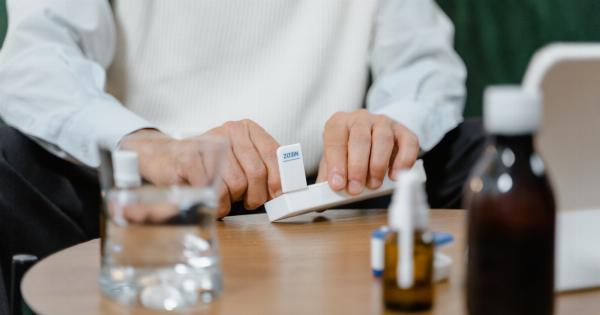Psoriasis is a chronic inflammatory skin condition that affects nearly 2 to 3 percent of the world’s population.
This autoimmune disorder occurs when the immune system mistakenly attacks healthy skin cells, causing abnormal skin cell growth and the development of red, scaly patches on the skin. Although psoriasis can affect any part of the body, it’s commonly found on the scalp.
Causes of Scalp Psoriasis
Although the specific cause of scalp psoriasis is unknown, there are several factors that can trigger its development. Here are some common risk factors:.
1. Genetics
If one or both parents have psoriasis, their children are more likely to develop psoriasis, including scalp psoriasis, too.
Researchers have identified certain genes that are associated with psoriasis, although it’s still unclear how they affect the condition.
2. Environmental Triggers
Environmental factors, including stress, injury to the skin, infections and cold weather can trigger an outbreak of scalp psoriasis. Smoking, alcohol consumption, and obesity also increase the risk of developing psoriasis.
3. Immune System
People with weakened immune systems are more prone to developing scalp psoriasis. For example, people with HIV or AIDS, or those undergoing chemotherapy, are at higher risk.
4. Skin Trauma
Scalp psoriasis may develop if there is an injury to the hairline or scalp. Scratching or rubbing harshly, hairdressing processes, or sustained use of certain shampoos, including those used to treat dandruff, can cause flare-ups.
Symptoms of Scalp Psoriasis
Scalp psoriasis is not limited to hair-bearing areas but can occur anywhere on the scalp. Here are some common symptoms:.
1. Red Patches
Scalp psoriasis typically presents as red, raised patches covered by silvery-white scales.
2. Itching and/or Burning Sensation
The patches can cause a burning sensation or become itchy, which can lead to hair loss if the person frequently scratches.
3. Dryness
Scalp psoriasis may cause the scalp to be dry, itchy and inflamed. People with scalp psoriasis can experience extreme shedding of the skin or dandruff.
Treatment for Scalp Psoriasis
Although there is no definitive cure for scalp psoriasis, treatments can relieve the symptoms and severity of the condition. Here are some popular remedies:.
1. Topical Treatments
Treatments for scalp psoriasis include topical medications that are applied directly to the scalp.
These may include over-the-counter corticosteroids, tar products, salicylic acid, or psoriasis shampoos, that are available in both prescription and non-prescription versions.
2. Light Therapy
Used for moderate to severe scalp psoriasis, light therapy involves exposing the skin to natural or artificial ultraviolet light. It’s an effective treatment, but its potential risks include skin cancer.
3. Oral or Injectable Medications
Oral or injectable medications can help moderate or severe psoriasis. These medications can be used in conjunction with other treatments and may also work for patients who do not respond to other treatment options.
4. Lifestyle Modifications
Regular exercise, stress-reduction techniques, including meditation, and changes in diet to include more lean protein, fruits, and vegetables have been shown to help reduce the severity and frequency of scalp psoriasis outbreaks.
Conclusion
Scalp psoriasis is a common and chronic skin disease that can affect anyone. Although it is not curable, there are many effective treatments that can help manage the symptoms and provide relief.
A combination of lifestyle modifications and medical interventions can help people with scalp psoriasis enjoy healthy and fulfilling lives.




























